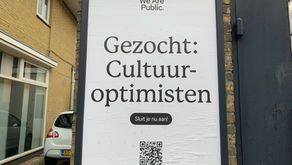Superwomen of Science
- Judith Weir
- Jul 26, 2016
- 2 min read

The latest installment of Minerva Scientifica, the project that brings together women composers and scientists, found us perching amongst skeletons and stuffed animals, in KCL’s Museum of Life Sciences, at its Guy’s Hospital campus. Singers Frances Lynch and Gwion Thomas (pictured foreground and centre) remained fresh and sprightly during a five hour sight-reading marathon, and seemed in no need of medical care afterwards.
Superwomen of Science, a continuous hour of vocal solos, is about to open in Edinburgh. It presents a chronological sequence of women scientists and their work, and in doing so subtly hints at the social context in which women have been able (or not) to contribute to scientific discovery through the ages. Inevitably, the show kicks off with Hildegard of Bingen, who managed to pursue music, science and many other fields all at once. It seems miraculous that so much of her thinking has survived for almost a thousand years – and the music still sounds so lovely.
The scientists chosen by our crack team of composers illustrate a dynamic familiar in music too. Earlier on in the sequence are women who happened by birth or marriage to live in the milieu of scientific research, including cosmologists and mathematicians Caroline Herschel, Mary Somerville (a striking piece by Lynne Plowman) and Ada Lovelace (an incisive psychological study by Cheryl Frances-Hoad). Next came an era when women managed to work in a thoroughly professional context, but still in a somewhat domestic environment. Karen Wimhurst (pictured, right) portrayed the historian of bees, Eva Crane. Trained in quantum mechanics and nuclear physics, Crane was given a beehive intended to help supplement wartime sugar rations, and that’s how it all started. Shirley Thompson profiled Anne Maclaren, a biologist whose work presaged in vitro fertilisation. Finally Kate Whitley alternated quotations from the contemporary astrophysicist Jocelyn Bell-Burnell with the sound of the pulsars she began to discover as a research student. But even though Bell-Burnell's name appeared second on those original papers, it was her male colleagues who won the relevant 1974 Nobel Prize. A deft musical reminder that these things change very slowly. I strongly recommend this enjoyably educational show to anyone in Edinburgh this summer.






